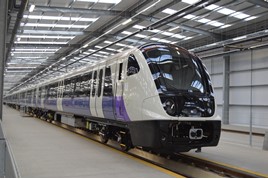Transport for London is “clearly struggling to cope with the financial impact of its fares freeze”, according to the organisation that examines its budget.
London Assembly’s Budget and Performance Committee says income from fares is well below expectations, meaning that TfL faces tough decisions.
Chairman Gareth Bacon, a Conservative Assembly Member, said: “We are not convinced that TfL has a solid understanding of the reasons for a fall in passenger numbers.
“TfL has had to revise its fares forecast down for the fourth year in a row, and its capital spend (even after adjusting for the Elizabeth Line) is set to fall.
“The figures in the draft budget don’t back up the Mayor’s claim that he is investing ‘record amounts in modernising our transport infrastructure’.”
The number of rail journeys fell by 5% in 2017, there were 13 million fewer journeys on the Tube last year, and the number of bus passengers has reduced by 6% in three years.
The metropolitan authority also no longer receives revenue support for transport from central government - a loss of £700 million. And London Mayor Sadiq Khan has partly frozen fares, with the cost of that put at £640m over four years.
The budget committee described this as “financial stress”, noting that capacity upgrades on London Underground had been cancelled, with bus services also due to be cut by 7% over five years.
Last October, TfL cancelled plans to buy new trains that would have increased capacity on the Jubilee and Northern lines. It had previously described the Jubilee upgrade as one of London Underground’s “lowest-risk and highest-benefit projects”.
- The full story will be published in RAIL 845, available digitally on Android and iPad from January 27, and on the shelves from January 31.















Login to comment
Comments
FrankH - 20/01/2018 00:51
More people are working from home equals less commuters. Also London is very expensive to visit and have a day out, money people can put to better use, equals less tourists.